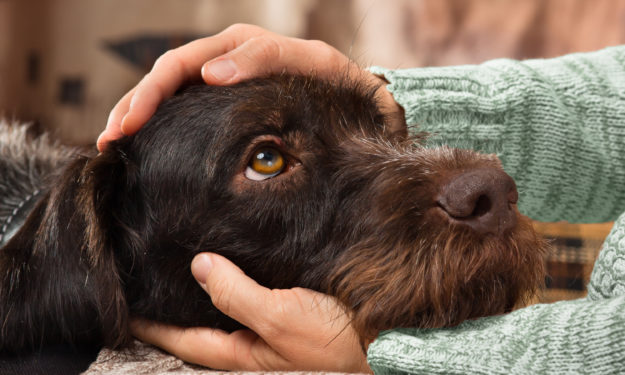What is this Human-Animal Bond?

The human-animal bond is often used to describe the relationship shared between people and animals. Pet owners know it is so much more than a relationship and anyone who has ever loved a companion animal has felt the strength of the human-animal bond. Our unique relationships with our pets can influence physical, social, emotional, psychological, and mental well-being for us and for them.
Maybe our pets can’t tell us how they feel but research can tell us our companions feel the impact of the human-animal bond too.The human-animal bond also benefits our furry companions. Oxytocin is a hormone found in humans, cats, and dogs. It is often referred to as “the love hormone” and plays a significant role in human bonding and might help explain how our pets feel about us. Studies have shown an increase in oxytocin levels in dogs after gazing into their owner’s eyes and an increase in oxytocin levels in in cats after playing with their owners.
The emotional strength of the human-animal bond may be difficult to describe to someone who has never shared a relationship with a pet but almost every pet owner recognizes unconditional love as a key component of the bond. Our pets offer friendship and love without judgement; they keep our secrets and listen to our fears; they are quick to forgive us when we make a mistake; and they don’t hold it against us (although sometimes I think my cat might hold it against me when I feed him later than usual). The bond we have with our pets can also provide us comfort and a sense of security.
The Psychological Benefits
The psychological benefits of the human animal bond have been indirectly recognized for many years. Even Sigmund Freud reportedly had his Chow Chow, Jofi, attend some of his sessions with clients. Today, the psychological benefits of the human-animal bond are well-known, acknowledged, and actively studied. There are many therapeutic providers that offer animal assisted therapy sessions and many hospitals have a team of therapy dogs that can visit patients in the hospital. Teams of handlers and therapy dogs are often found comforting victims after a major natural disaster and a regular team of therapy dogs could be found on Boylston Street in Boston after the traumatic Boston Marathon in 2013.
Although the benefits of the human-animal bond are becoming more recognized by society, it’s important to acknowledge that everyone’s relationship with their pet is unique and special.
Improvement in Mental Health
The human-animal bond has also been known to improve our mental health. Pets can improve symptoms of depression, anxiety, PTSD, they can decrease feelings of loneliness. Pets can also improve our physical health. According to the Center for Disease Control (CDC), pet ownership can lower blood pressure and can positively influence our rate of physical activity. Our companions help us cope with stress which can improve cardiovascular health. For older adults, the human-animal bond has been directly linked to healthy aging. Pets can decrease isolation and improve social wellbeing among older adults. In settings where pet ownership may not be ideal, visitation from therapy animals can also have a significant impact on wellbeing. Therapy animals can improve quality of life for both the handler and the patients that are visited.
Although the benefits of the human-animal bond are becoming more recognized by society, it’s important to acknowledge that everyone’s relationship with their pet is unique and special. Some people may consider their pet to be their best friend, a family member or like a child. Others may rely on their companion as a source of emotional support, a connection to the past, or even hope for the future. Anyone who has ever loved an animal understands the unspoken strength of the human-animal bond.
Resources:
About Pets & People | Healthy Pets, Healthy People | CDC. (n.d.). Retrieved from https://www.cdc.gov/healthypets/health-benefits/index.html
Murphy, K. (n.d.). The Chemistry Between Humans & Pets | Hill’s Pet. Retrieved from https://www.hillspet.com/pet-care/behavior-appearance/why-humans-love-pets
Written by Christina Stephens-Malloy, LCSW